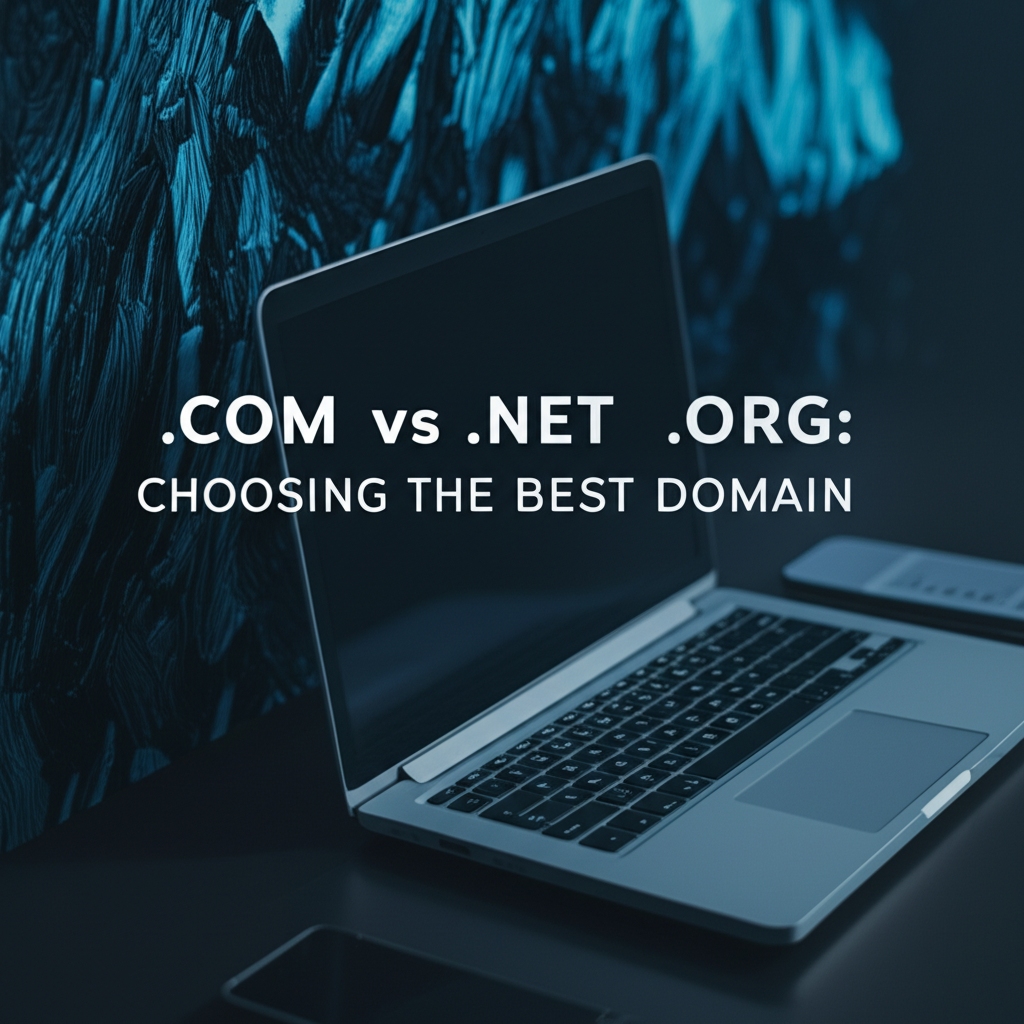- Understanding .COM, .NET, and .ORG Domains
- .COM Domains: The Commercial King
- Advantages of .COM:
- Disadvantages of .COM:
- .NET Domains: The Network Hub
- Advantages of .NET:
- Disadvantages of .NET:
- .ORG Domains: The Organizational Choice
- Advantages of .ORG:
- Disadvantages of .ORG:
- Choosing the Right Extension: .COM, .NET, Or .ORG?
- Final Thoughts on .COM vs .NET vs .ORG
.COM vs .NET vs .ORG: Choosing the Best Domain
Choosing the right domain extension is a crucial step in establishing your online presence. While seemingly small, the suffix at the end of your web address—like .com, .net, or .org—communicates important information about your website’s purpose and can influence how your audience perceives you. This article will explore the key differences between these three popular domain extensions and guide you toward making the best choice for your website.
Understanding .COM, .NET, and .ORG Domains

Each domain extension has its own historical significance and intended use, which impacts its relevance and perception today. Understanding these nuances allows you to choose a domain extension that aligns with your website’s goals.
.COM Domains: The Commercial King
.COM is the most widely recognized and popular top-level domain (TLD). Originally intended for commercial entities, .COM has become synonymous with the internet itself. Its widespread adoption makes it highly desirable for virtually any type of website, from businesses and e-commerce platforms to blogs and portfolios. The .COM extension signifies established presence and often benefits from better search engine ranking due to its familiarity and user trust.
Advantages of .COM:
Credibility and Trust: .COM is instantly recognizable and associated with professional websites.
Memorability: Its short and simple nature makes it easy to remember and share.
SEO Benefits: Search engines often favor .COM domains due to their prevalence and history.
Disadvantages of .COM:
Availability: Due to its popularity, desirable .COM domain names are often already taken.
Cost: Premium .COM domains can be expensive to acquire.
.NET Domains: The Network Hub
.NET originally designated networks and internet service providers. While it has evolved to encompass a broader range of websites, it still carries a subtle association with technology and internet infrastructure. .NET is a suitable alternative when the desired .COM domain is unavailable. It’s frequently used by tech-related businesses, online communities, and web development services.
Advantages of .NET:
Availability: More .NET domain names are likely available compared to .COM.
Tech Association: Projects with a technological focus can benefit from this implicit connection.
Credibility: While not as impactful as .COM, .NET still carries a level of trustworthiness.
Disadvantages of .NET:
Memorability: It can be confused with .COM, leading to potential traffic loss.
SEO Impact: While not significantly detrimental, .NET domains may not rank as highly as .COM in some cases.
.ORG Domains: The Organizational Choice
.ORG stands for “organization” and was traditionally intended for non-profit organizations, charities, foundations, and NGOs. This association gives .ORG domains a sense of authority and public good. While other entities can technically use .ORG, it’s generally recommended to reserve it for organizations aligned with its original purpose to maintain its intended significance.
Advantages of .ORG:
Trust and Non-Commercial Image: .ORG fosters a sense of trust and suggests a focus on mission rather than profit.
Suitable for Non-Profits: It immediately identifies the website as belonging to a non-profit organization.
Disadvantages of .ORG:
Perception of Non-Profit Status: Using .ORG for a commercial venture can confuse visitors and impact credibility.
SEO Impact: May not perform as well as .COM for commercial searches.
Choosing the Right Extension: .COM, .NET, Or .ORG?
Making the best choice depends on your specific goals and target audience. Here’s a decision-making framework:
Prioritize .COM if possible: If your desired .COM domain name is available, it’s generally the best choice for most websites, regardless of industry.
Consider .NET for tech-focused projects: If your website revolves around technology, networking, or internet services, .NET can be a suitable alternative if the .COM is unavailable.
* Reserve .ORG for non-profits: To maintain the integrity of the .ORG extension, reserve it for non-profit organizations and projects aligned with its intended usage.
Final Thoughts on .COM vs .NET vs .ORG
Choosing the right domain extension is a strategic decision that can impact your online success. By understanding the nuances of .COM, .NET, and .ORG, you can choose an extension that aligns with your website’s purpose, builds trust with your audience, and contributes positively to your overall online presence. Consider your long-term goals, target audience, and the message you want to convey when making your final decision.















Leave a Reply